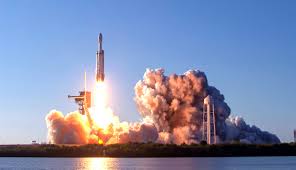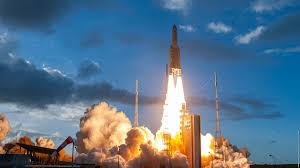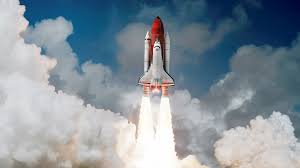The Spectacle of Rocket Launches: A Modern Exploration
Rocket launches are among the most spectacular human achievements. They symbolize progress, exploration, and our persistent desire to understand the universe. From humble beginnings in the mid-20th century to today’s cutting-edge technology, the process of launching rockets has evolved into a precise, awe-inspiring event. This article delves into the intricacies, significance, and future of rocket launches in the modern era.
A Brief History of Rocket Launches

The journey of rocketry began long before the first modern rocket lifted off. Early designs can be traced back to the invention of gunpowder-propelled rockets in ancient China. However, it was in the 20th century that the field of rocketry experienced exponential growth, driven largely by the space race between the United States and the Soviet Union.
The launch of Sputnik 1 by the Soviet Union in 1957 marked the beginning of the space age. This event was quickly followed by NASA’s Apollo program, culminating in the historic moon landing of 1969. These early rocket launches set the stage for the advanced, reusable rockets we see today.
The Technology Behind a Successful Launch
Modern rockets are engineering marvels, combining advanced materials, propulsion systems, and navigation technologies. A successful launch requires a detailed orchestration of multiple components working seamlessly together.
- Propulsion Systems: Rockets rely on powerful engines fueled by a combination of liquid and solid propellants. These engines generate enough thrust to escape Earth’s gravitational pull. Innovations like reusable engines have revolutionized the industry, reducing costs and increasing efficiency.
- Guidance and Navigation: Precise guidance systems ensure that rockets follow the correct trajectory. These systems use onboard computers, gyroscopes, and GPS technology to make real-time adjustments during flight.
- Payload Delivery: The payload—whether a satellite, crewed spacecraft, or scientific equipment—is carefully integrated into the rocket. Engineers meticulously calculate the weight and dimensions to ensure optimal performance.
The Significance of Rocket Launches
Rocket launches serve as more than just technological showcases; they are gateways to scientific discovery, economic growth, and international cooperation.
- Advancing Science: Rockets enable scientists to send satellites into orbit, study other planets, and perform experiments in microgravity. Missions like the Mars rover explorations or the James Webb Space Telescope owe their success to powerful rocket launches.
- Economic Impact: The space industry contributes significantly to the global economy. Communications, weather forecasting, and GPS technologies depend on satellites launched into orbit. Private companies like SpaceX and Blue Origin have further expanded commercial opportunities.
- International Collaboration: Space exploration fosters cooperation between nations. Collaborative projects like the International Space Station (ISS) demonstrate the potential for unity through shared goals.
Challenges in Rocket Launches

Despite their successes, rocket launches remain fraught with challenges. These issues range from technical difficulties to environmental concerns.
- Technical Failures: Launch failures can result in significant financial and scientific losses. Even with rigorous testing, unexpected malfunctions can occur during ignition, flight, or payload deployment.
- Environmental Impact: Rockets release large amounts of carbon dioxide and other pollutants into the atmosphere. The production and disposal of rocket materials also pose environmental risks.
- Space Debris: The increasing number of launches has led to a rise in orbital debris. Collisions between defunct satellites and operational spacecraft present a growing problem for the space industry.
The Role of Private Companies
The landscape of rocket launches has been transformed by private enterprises. Companies like SpaceX, Blue Origin, and Rocket Lab have introduced innovations that challenge traditional approaches to space exploration.
- Cost Reduction: Reusable rocket technology, pioneered by SpaceX’s Falcon 9, has dramatically lowered the cost of launches. This development has made space more accessible to governments, companies, and even individuals.
- Commercial Satellites: Private companies now dominate the market for launching satellites, providing services for telecommunications, Earth observation, and more.
- Space Tourism: Blue Origin and Virgin Galactic have made strides in offering suborbital spaceflights to private individuals, marking the dawn of space tourism.
Upcoming Innovations in Rocket Technology

The future of rocket launches is brimming with wdbos possibilities. Advances in materials, propulsion systems, and mission planning are pushing the boundaries of what rockets can achieve.
- Green Propulsion: Researchers are developing eco-friendly propellants to minimize environmental impact. Innovations in hydrogen-based fuels and electric propulsion hold great promise.
- Interplanetary Missions: Missions to Mars and beyond are becoming increasingly feasible. NASA’s Artemis program and SpaceX’s Starship aim to establish a human presence on the Moon and Mars, respectively.
- Hypersonic Travel: Rockets are also paving the way for hypersonic transportation, enabling faster travel between distant locations on Earth.
The Cultural and Inspirational Impact
Rocket launches capture the imagination of people worldwide. They are a testament to human ingenuity and a reminder of our limitless potential.
Live broadcasts of launches attract millions of viewers, showcasing the unifying power of space exploration. For many, these events are a source of inspiration, encouraging the pursuit of careers in science, technology, engineering, and mathematics (STEM).
Rocket Launches as a Symbol of Hope
In times of global uncertainty, rocket launches serve as a beacon of hope. They represent the best of humanity—our ability to dream, innovate, and overcome challenges. The collaborative nature of space exploration reminds us that we can achieve great things when we work together.
Conclusion
Rocket launches are more than just technological feats; they are milestones in humanity’s quest to understand the universe. From advancing science to inspiring generations, these events hold profound significance. As technology continues to evolve, the possibilities for exploration and discovery are endless. Whether through interplanetary missions, space tourism, or commercial satellites, rocket launches will remain a cornerstone of progress and innovation.

